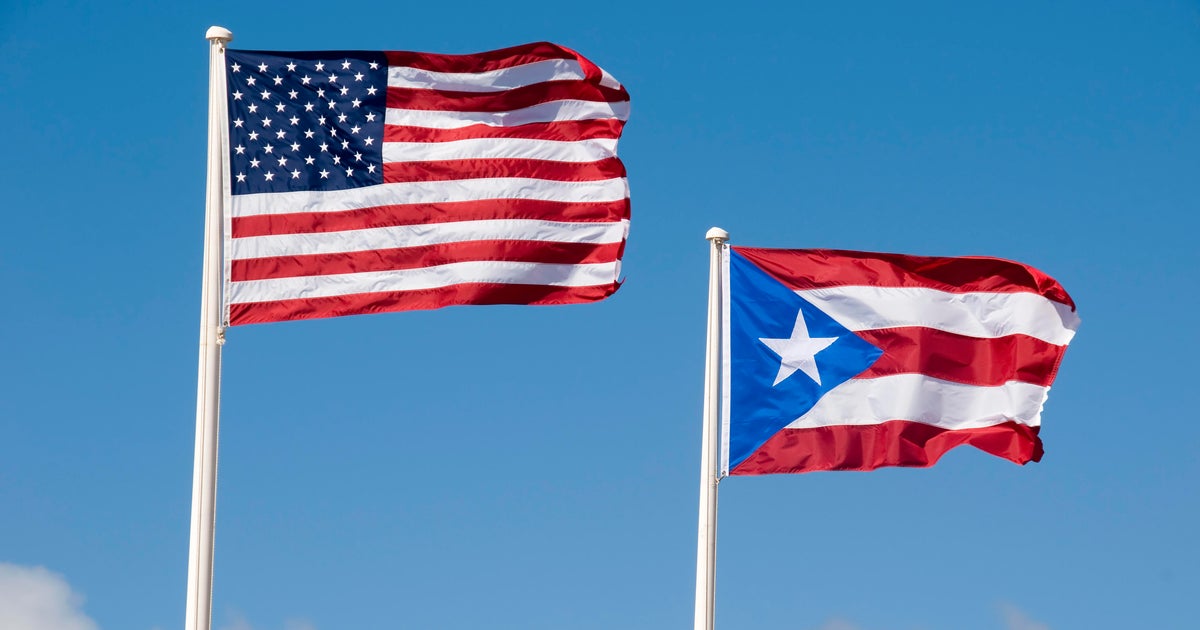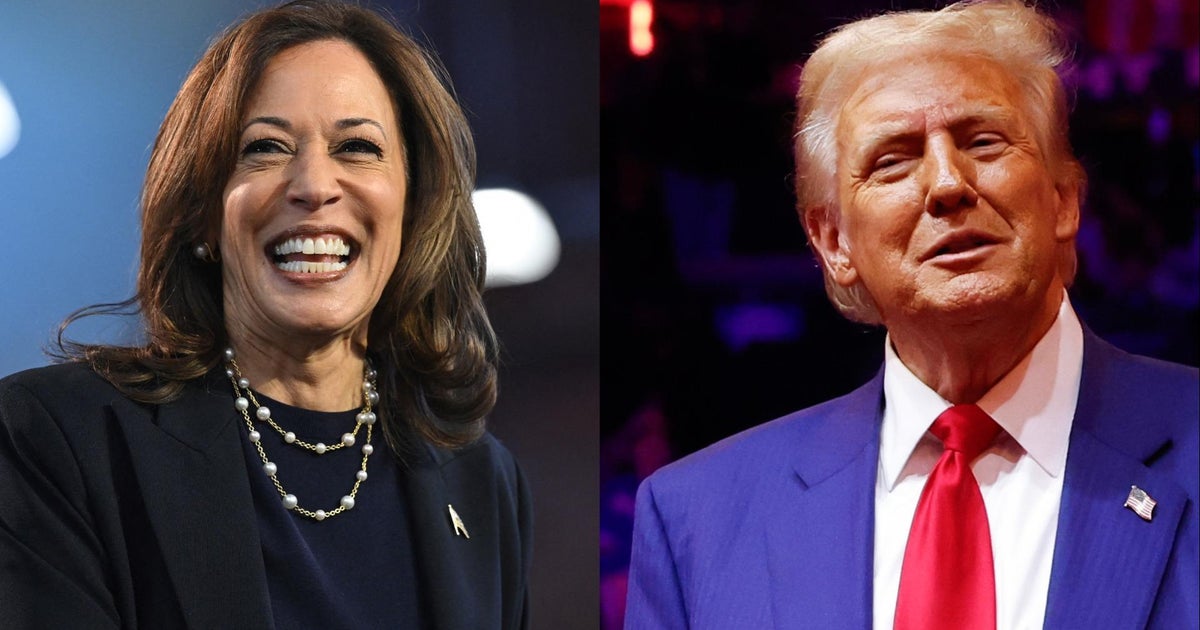CBS News
Puerto Rican politicians react to Trump rally racist, offensive comments

Watch CBS News
Be the first to know
Get browser notifications for breaking news, live events, and exclusive reporting.
CBS News
What happens to Trump’s criminal cases if he wins the election? Experts weigh in.
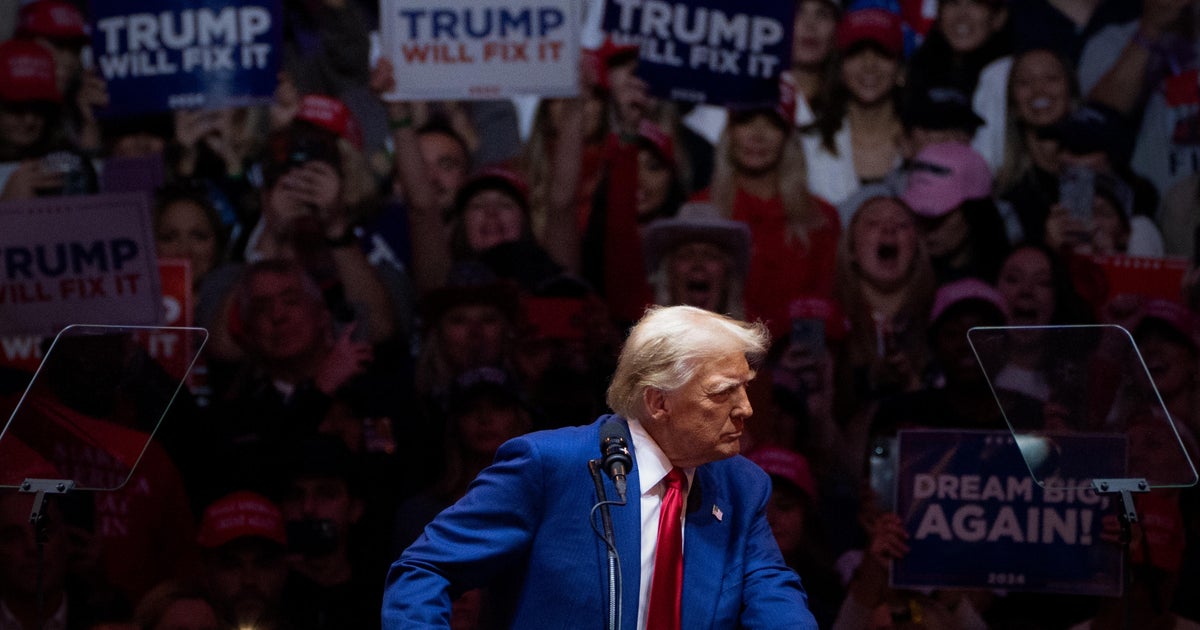
After the 2024 election next week on Nov. 5, former President Donald Trump will be met with one of two fates: a return to the Oval Office, or years of criminal court proceedings, and perhaps incarceration, experts say.
Perhaps no candidate in U.S. history has faced such stark personal stakes on Election Day.
Trump’s third campaign for president has played out alongside the four criminal cases against him — two in halting fits and spurts, one toward dismissal and one moving relatively swiftly toward a potential conviction.
Where they go from here could very well depend on whether Trump is elected.
New York “hush money” case
A unanimous jury found Trump guilty in May of 34 felony counts of falsifying business records. The seven-week trial focused on a scheme Trump signed off on, while in office as president, in which he and others covered up a payment to an adult film star to prevent her from airing a claim that she and Trump had a sexual encounter years before.
The $130,000 payment was made days before the 2016 presidential election. The consequences are scheduled to be revealed days after the 2024 election.
Trump’s sentencing, initially scheduled for July 11 and then postponed again in September, is set for Nov. 26.
Former New York prosecutor Bennett Gershman said even if Trump wins the election, “I don’t see any reason in law for why the sentencing would be delayed.”
Whether he’s president-elect, or once again a defeated candidate, one thing is relatively certain, said Gershman, who’s a professor at Pace University’s law school. Even if Trump loses the election and is sentenced to time in jail or prison, it could be years before he’s incarcerated.
“It’s going to take time for the appeal to wash out,” said Gershman. And if Trump wins, appeal proceedings or the sentence itself, would likely be delayed until after his presidency.
“He’d be a president with 34 felony convictions, and maybe he’s a felon who’s sentenced to two or three years in jail, and he’s running the nation,” Gershman said. “This is all new stuff, but it’s not out of fantasy land anymore.”
The special counsel cases
2020 election
Trump was indicted in August 2023 in a case brought by special counsel Jack Smith. He was charged with four counts stemming from his conduct after the 2020 election, as he and others sought to turn over the results, which showed Trump had lost to Joe Biden.
The case ground to a halt as Trump brought a claim of presidential immunity to the Supreme Court, which in July ruled former presidents are shielded from prosecution for official acts taken while in the White House.
In August, a federal grand jury returned a superseding indictment that narrowed the allegations against him to comply with the high court’s new framework for presidential immunity.
Handling of sensitive documents
Smith is also overseeing a prosecution in a Florida federal court in which Trump is accused of mishandling sensitive government records after leaving the White House in January 2021. That case was dismissed in July by U.S. District Judge Aileen Cannon, who said in a 93-page order that she concluded Smith had been appointed unlawfully.
Smith’s office appealed that decision, arguing Cannon ruled incorrectly. Trump’s team has seized on her decision and argued it provides grounds to similarly dismiss the election case Smith brought.
The arguments from both sides may be for naught if Trump wins the election, according to CBS News legal analyst Rikki Klieman, who said his administration’s Justice Department would likely drop the cases.
“If Donald Trump becomes President of the United States, it would logically follow that his attorney general and the new Department of Justice would dismiss the cases that special counsel Jack Smith brought,” Klieman said.
Trump himself has said if he’s elected, Smith will be out of a job.
“It’s so easy — I would fire him within two seconds,” Trump said during an Oct. 24 radio interview.
Fulton County, Georgia, case on 2020 election
Trump was among 19 people charged in a state case in Georgia in August 2023, accusing the group of a racketeering enterprise that sought to illegally thwart Trump’s election defeat in the state.
Five of the 13 counts against Trump have been dismissed, though Fulton County D.A. Fani Willis has appealed the dismissal of three and is likely to appeal the others.
The case has been on hold since June, when the state’s Court of Appeals agreed to consider whether Willis should be removed from the case for having had a romantic relationship with former special prosecutor Nathan Wade.
If Trump wins, the Fulton County criminal case will go from on hold to “a grinding halt,” said Emory University law professor John Acevedo.
“There is that right that all defendants have to confront witnesses, but you can’t really have the president of the United States sitting in an Atlanta courtroom,” Acevedo said.
One person who shares that view is Trump’s lead attorney in the Georgia case, Steve Sadow. He said during a December 2023 hearing in the case that if Trump won, any trial would need to be delayed until at least 2029.
Sadow cited the Constitution’s Supremacy Clause, and argued the state’s prosecution would essentially be outranked by the federal government’s needs while Trump is in the White House.
“I believe that the supremacy clause and his duties as president of the United States [mean] this trial would not take place at all until after his term in office,” Sadow said.
CBS News
Threat actors likely to take advantage of election fraud claims to fuel violence, bulletin warns
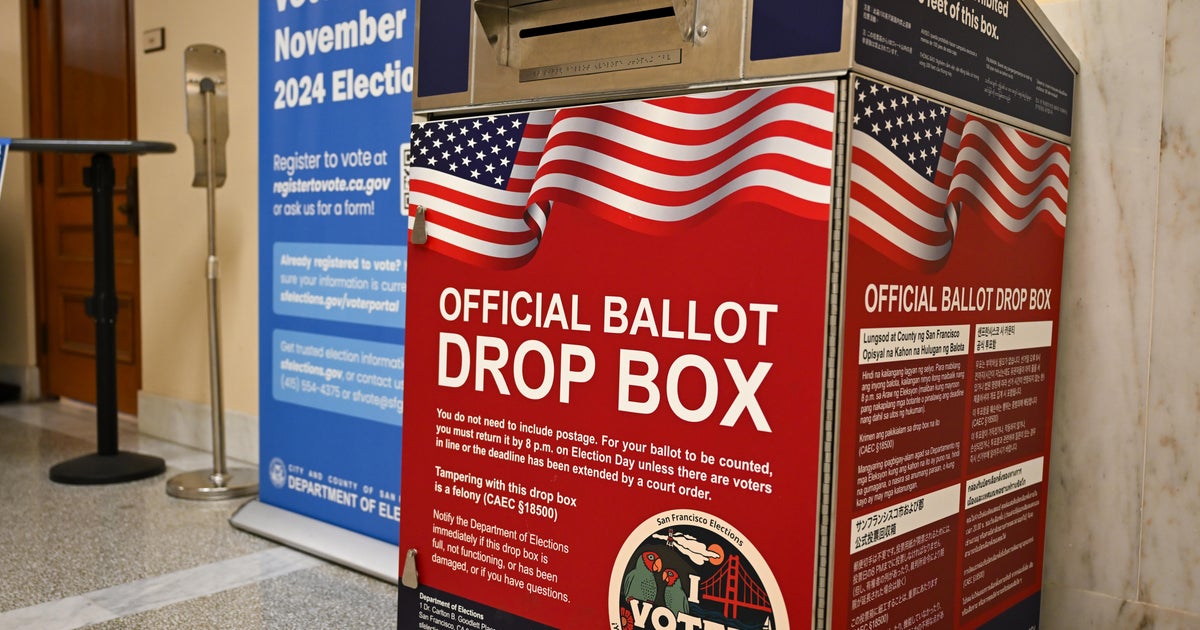
Washington — Threat actors are likely to leverage claims of election fraud to drive election-related violence, according to a federal bulletin obtained by CBS News.
“Some individuals are calling for violence as a response to election fraud narratives, primarily targeting election officials and populations that threat actors perceive as threatening the integrity of the 2024 general election,” the bulletin says.
The bulletin, which was published Monday by the Department of Homeland Security, warned that online forums used by domestic violent extremists contain threats of violence against election officials and infrastructure “to prevent perceived fraud or to retaliate against it.” Many of the posts are promoting narratives about election fraud linked to mail-in ballots or electronic voting machines, it said.
“Some individuals motivated by this narrative have stated their intent online to intimidate voters or elections staff through surveillance of election infrastructure or personnel, including by armed individuals,” the bulletin continued. “Some of these online users have encouraged violence against ideological opponents related to the use of mail-in voting while others promoted methods of sabotaging ballot drop boxes. Other individuals are using online forums to call for violence against local election officials in response to allegations of fraud.”
Federal investigators believe there are several factors that could increase threat actors’ perceptions of election fraud, including “a contested or close election, variations in state election laws and regulations impacting the release of results, unforeseen events that delay vote counting, or technological or administrative errors impacting vote counting processes.”
The warning comes as ballot boxes have been set on fire in Portland, Oregon, and Vancouver, Washington, destroying hundreds of ballots. A number of mail-in ballots were also damaged when a U.S. Postal Service mailbox was recently set on fire in Phoenix, Arizona. The incidents are under investigation.
Last week, intelligence and law enforcement agencies said Russian actors had “manufactured and amplified” a video purporting to show someone destroying mail-in ballots in Bucks County, Pennsylvania “as part of Moscow’s broader effort to raise unfounded questions about the integrity of the U.S. election and stoke divisions among Americans.”
A joint intelligence bulletin issued earlier this month by the Department of Homeland Security and FBI warned of the potential for domestic violent extremists “with election-related grievances” to target political candidates and elected officials in the coming weeks. It said domestic extremists “pose a threat of violence to a range of targets directly and indirectly associated with elections through at least the presidential inauguration” on Jan. 20, 2025.
A Department of Homeland Security spokesperson said Monday that the U.S. remains in a “heightened” threat environment.
“The Department continues to advise federal, state, and local partners to remain vigilant to potential threats and encourages the public to report any suspicious activity to local authorities,” the spokesperson said.
CBS News
Republicans turn to Supreme Court in dispute over Pennsylvania provisional ballots
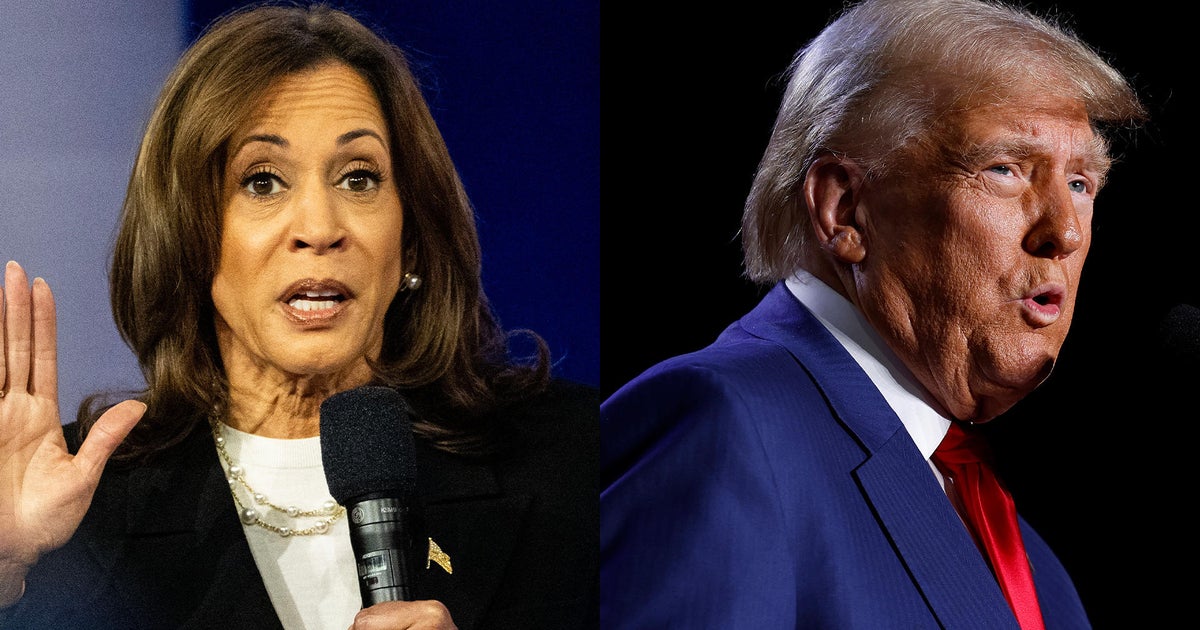
Washington — The Republican National Committee asked the Supreme Court on Monday to put on hold a state high court decision that said election officials must count provisional ballots cast by a voter whose mail ballot was rejected because it was returned without a secrecy envelope.
The request for emergency relief sought by Republicans is the second involving the 2024 election to be filed with the Supreme Court on Monday. Earlier in the day, Virginia officials asked the high court to allow it to move forward with removing roughly 1,600 alleged noncitizens from state voter rolls.
Both requests for the Supreme Court’s intervention come just over a week before Election Day and as millions of voters across the country have already cast their ballots early, either in person or by mail. In Pennsylvania, more than 2 million mail ballots have been requested, and roughly 1.4 million returned, according to the University of Florida Election Lab.
Pennsylvania is a crucial state that could decide whether Vice President Kamala Harris or former President Donald Trump wins the White House. Republicans warned that if the Pennsylvania Supreme Court’s ruling is left untouched, “tens of thousands” of provisional votes may be counted. In the 2020 election, when many states made it easier to vote by mail because of the COVID-19 pandemic, roughly 1% of returned mail ballots in Pennsylvania were rejected because they did not have secrecy envelopes, according to an analysis from the MIT Election Data and Science Lab.
Republicans said that if the justices determine that a full stay is not warranted, they should order provisional ballots cast by voters whose mail ballots were defective to be set aside and if counted, they should be tallied separately and not included in the official vote count while the legal battle plays out.
“This case is of paramount public importance, potentially affecting tens of thousands of votes in a state which many anticipate could be decisive in control of the U.S. Senate or even the 2024 presidential election,” lawyers for the Republicans wrote. “Whether that crucial election will be conducted under the rules set by the General Assembly or under the whims of the Pennsylvania Supreme Court is an important constitutional question meriting this court’s immediate attention.”
The Pennsylvania case arose after the state’s primary election in April, when two voters from Butler County submitted mail ballots but failed to enclose them in secrecy envelopes. The state also requires voters to sign and date the mailing envelopes containing their ballots. Failure to comply with these requirements renders the mail ballot invalid.
Because the voters returned their ballots without secrecy envelopes, they were notified by the Butler County Election Board that their votes might not be counted and were advised that they could cast provisional ballots during in-person voting, and both voters did so.
But the county board of elections did not count those provisional ballots. After learning they were rejected, the voters sued in state court, arguing that the board was wrong to reject their ballots. The trial court disagreed, finding that the state’s election code prohibits individuals who submit mail ballots that are “timely received” from having their provisional ballots tallied. A voter’s error in returning a mail ballot was not found to be an acceptable reason to count a provisional ballot.
But the voters prevailed before the Pennsylvania Supreme Court, which ruled in a 4-3 decision that boards of elections must count provisional ballots cast by voters whose mail ballots are rejected for lacking secrecy envelopes.
While the dispute involves voters from Butler County, the Pennsylvania Department of State issued guidance last week stating that a provisional ballot may be issued when voters return a completed mail ballot that would be rejected and the voters believe they’re eligible to vote.
Republicans urged the Supreme Court to pause the decision from Pennsylvania’s top court, warning that if it remains in place, county boards “will be forced to ignore the Election Code’s clear mandate and count provisional ballots cast on Election Day by those who submitted defective mail ballots.”
They also argued that the state supreme court was wrong to change the rules regarding mail voting after it had started and so close to Election Day.



